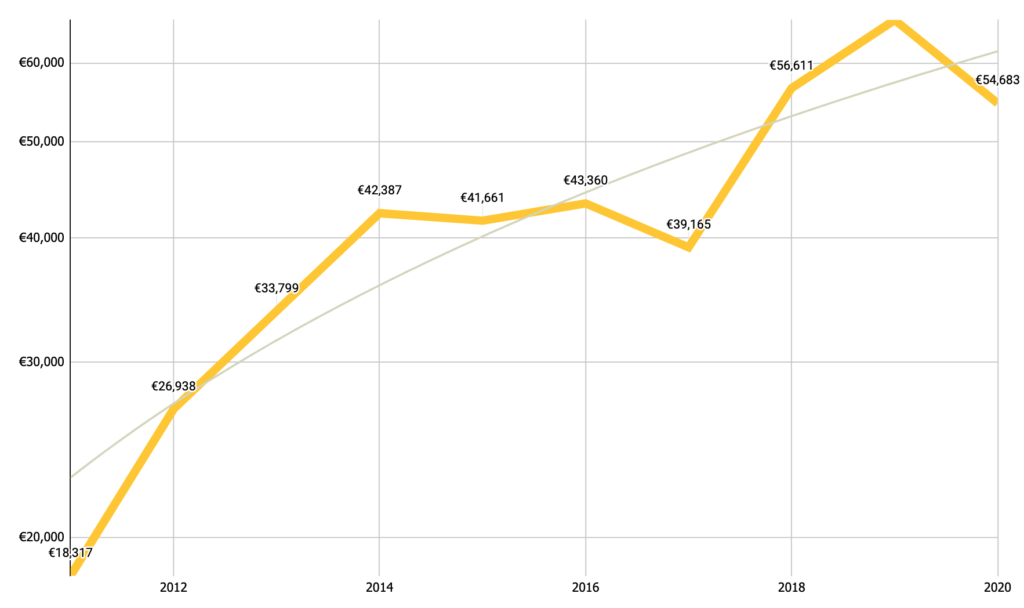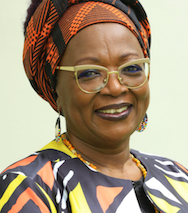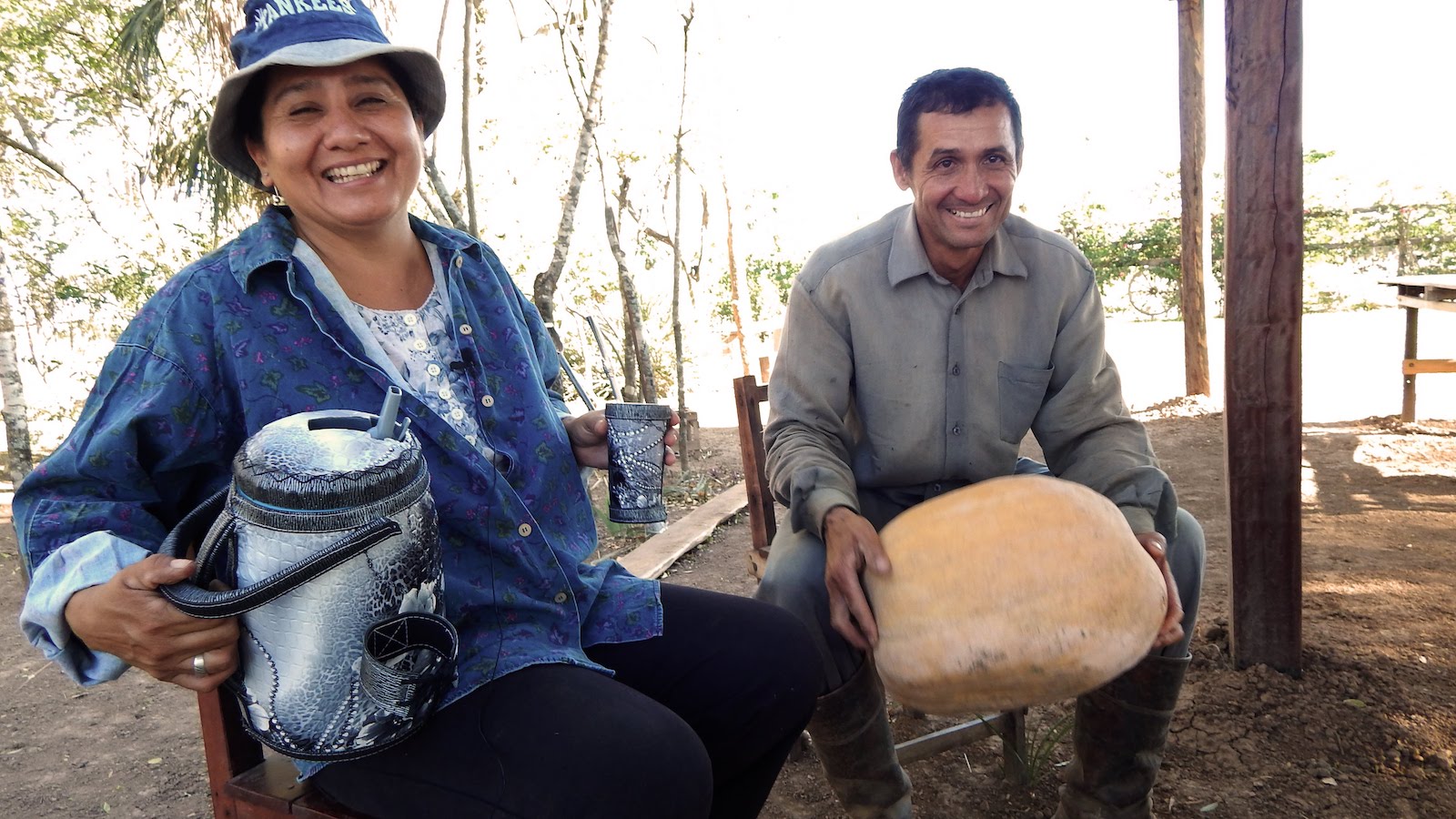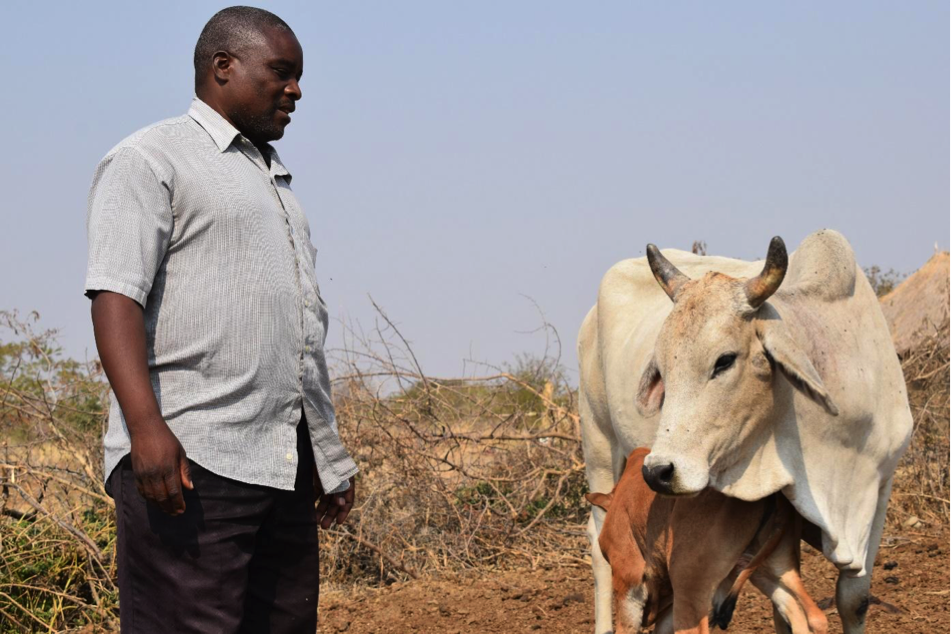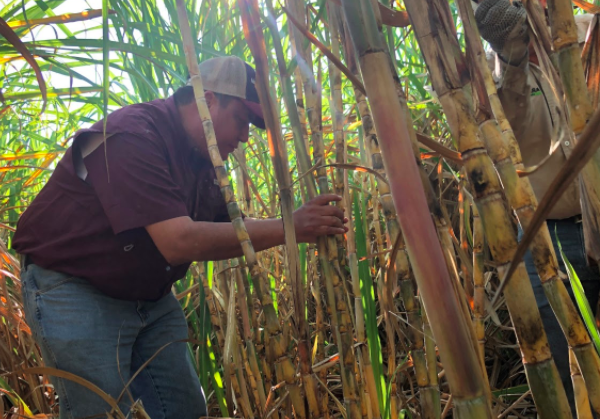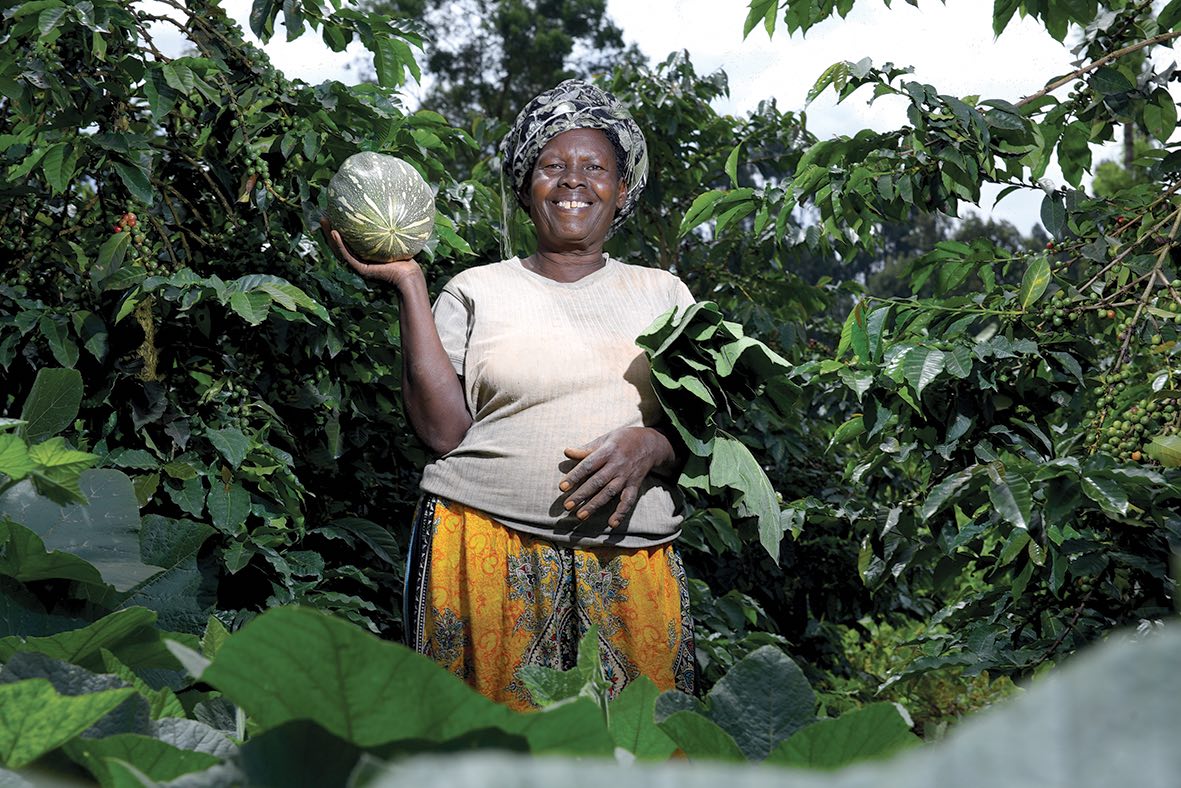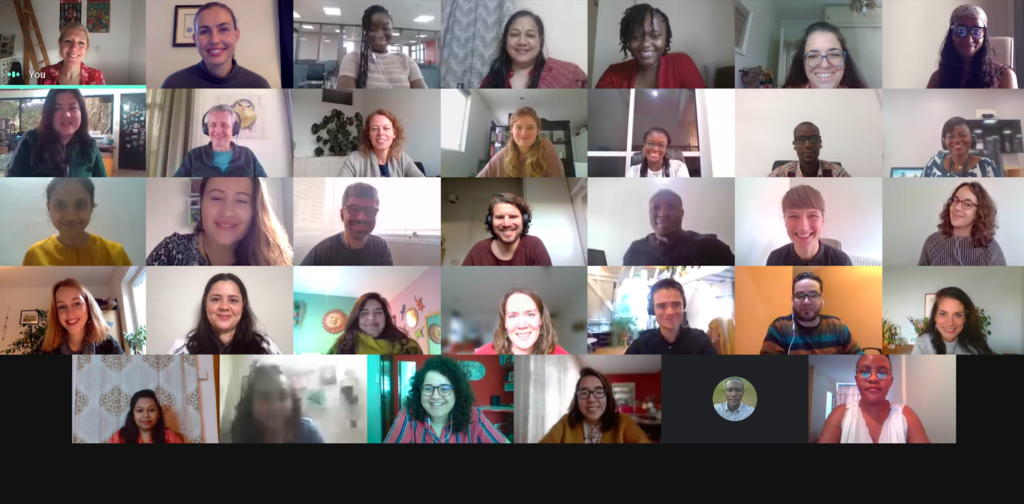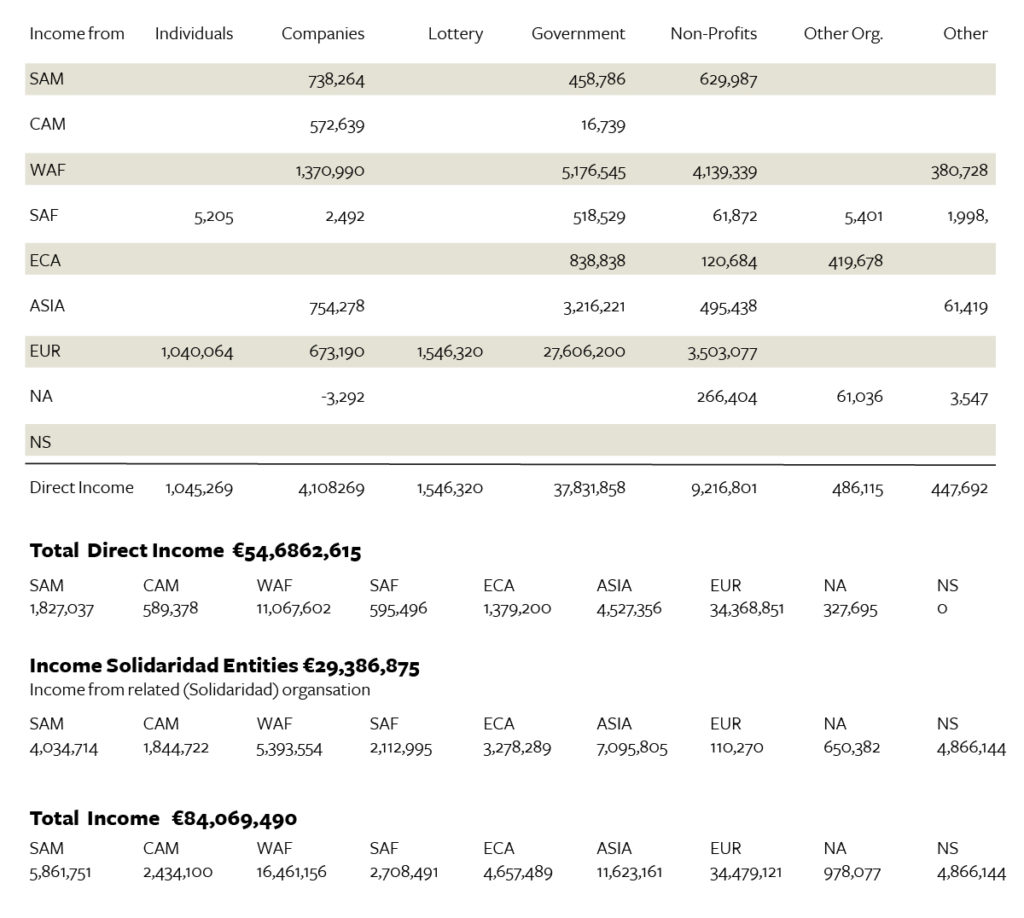Surpassing goals
Despite Covid-19 challenges, we supported more than 500,000 producers to adopt good practices, with more than 383,000 hectares now under sustainable management. Work continued at the market level, with more than 50,000 farmers engaged in a federated model, who now own the Village Super Market. On the policy level, we contributed to 20 policy recommendations across 37 multi-stakeholder platforms.
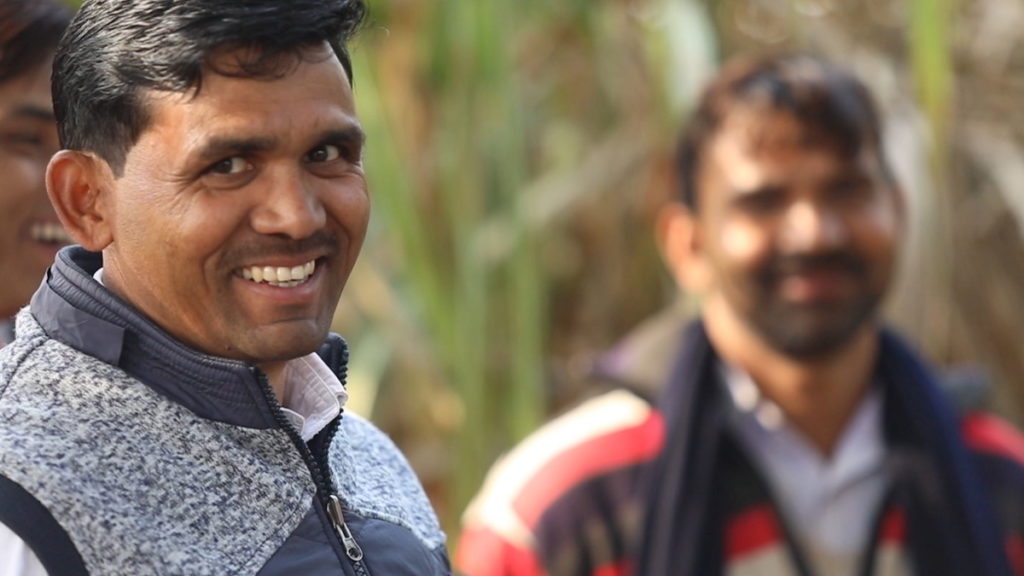
Holistic engagement
Farmers, workers, cooperatives, companies, and mills across the region implemented climate-change adaptation and ecosystem-services generation, leading to more than 50,000 hectares under good practices, and over 37,000 producers trained. In this period, our work to create an enabling policy environment contributed to a national training plan for sugarcane in Mexico, the organization of technical committees for palm oil in Guatemala and Honduras, and the approval of a national gender policy in Nicaragua.
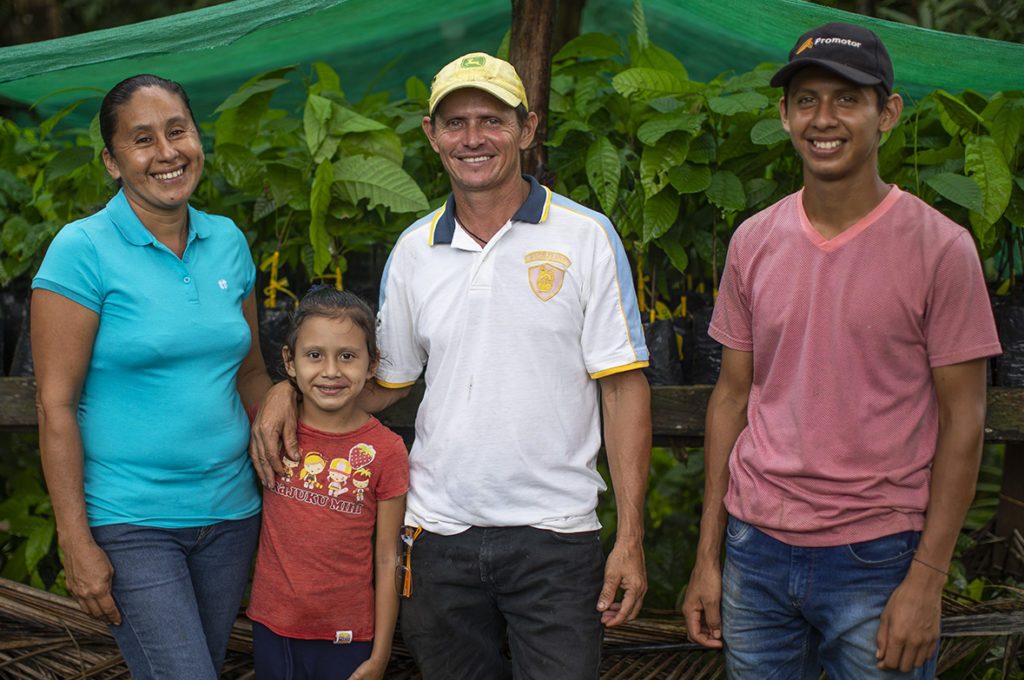
Making gains
Through our Practice for Change project and Food for All Kenya, we supported more than 85,000 producers (65 percent women) to adopt good practices. Our enabling policy work contributed to the finalization of the National Tea Policy, its Implementation Plan, and Regulatory Impact Assessment. Meanwhile our advocacy in mining continued with lobbying in Tanzania to make gold mining licensing more gender inclusive with greater flexibility on land ownership requirements. Finally, pilot programmes under sustainable landscapes saw more than 10,000 producers adopt land-use planning in the Kilimanjaro region, and income and funding gains for the pilot groups.
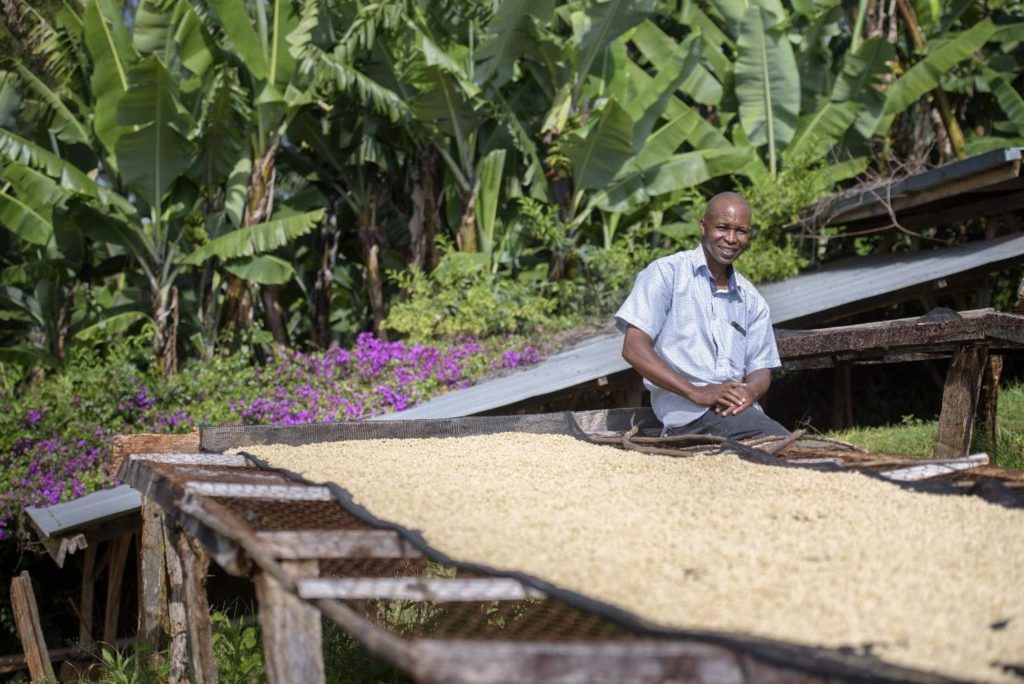
Catalyzing change
2020 marked a year of meaningful relationship building—fostering connections and shared ambitions with existing partners and funders, and sparking dialogues with new partners and donors to scale impact. We signed new donor contracts worth 78 million euros and brought 39 issues to policy maker agendas, putting the smallholder producer at the center. We also brought funding opportunities directly to smallholders through the launch of the PlusPlus crowdfunding platform.
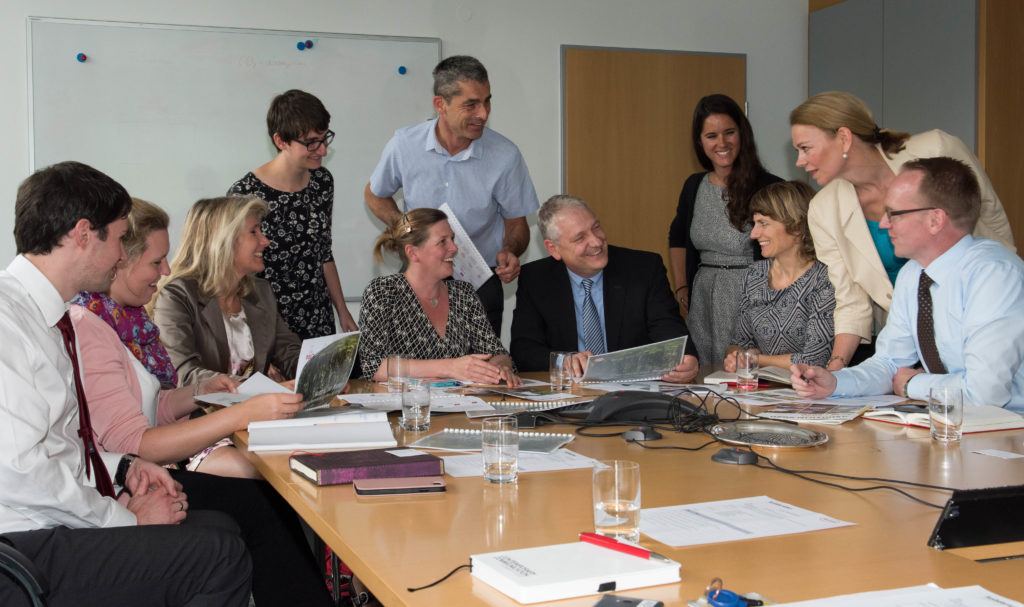
Unlocking potential
2020 was a transformative year for North America in more ways than one. We grew our capacity, and signed $1.2 million in new contracts. We also sparked critical conversations with ten major global corporations around issues ranging from zero-deforestation and climate to transparency and labour practices. We boosted our visibility regionally by participating in or hosting panel discussions at three globally attended events including AgriLinks’ ICTforAg and SOCAP.
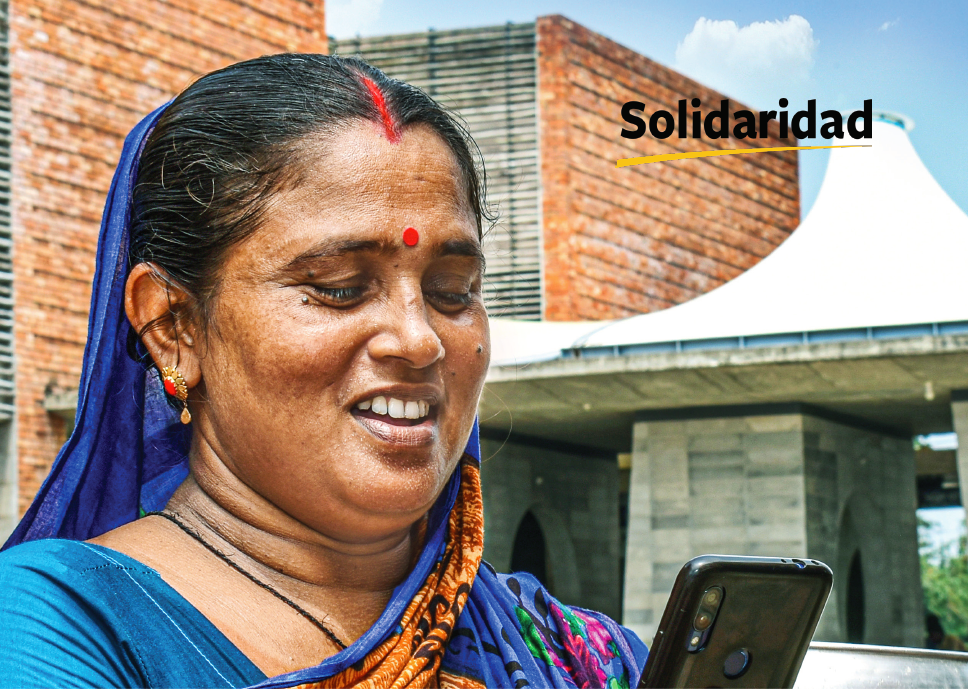
Innovation in action
In 2020, our work resulted in more than 90,000 producers adopting to good practices, being applied on over 406,000 hectares of land. Additionally, our climate-smart programme continued to grow, building-up producers’ resilience, increasing carbon sequestration, and ensuring no further land conversion is necessary. In supporting robust infrastructure, we signed agreements with two of the largest meatpackers in the world to incorporate digital sourcing tools to monitoring sustainability performance, and also started a scheme to pay coffee farmers for their environmental service using a platform called BanCO2. Our policy efforts contributed to a common environmental regulatory framework in Bolivia, and a public-private coalition for zero-deforestation cocoa in the Amazon.
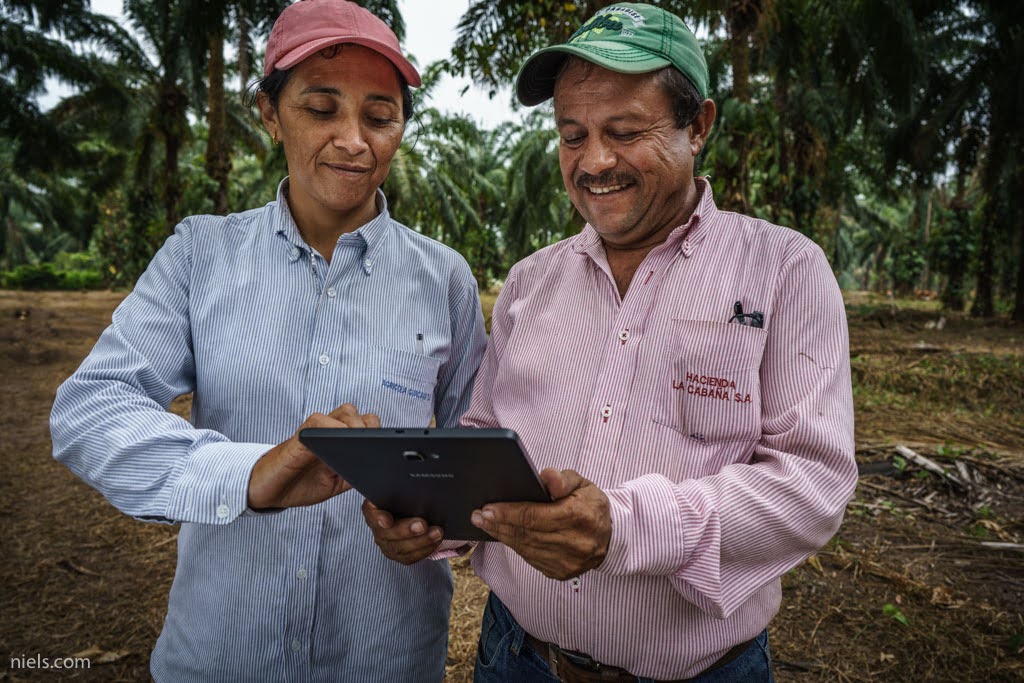
Tangible impact
Through the Practice for Change project, more than 36,000 smallholder farmers were supported to adopt good agricultural practices, while the LI-SAF project helped to bring over 60,000 hectares under sustainable management. Direct training for producers was complemented by policy work that engaged 145 stakeholders across 16 multi-stakeholder platforms, and 20 civil society organizations with capacity building and advocacy.
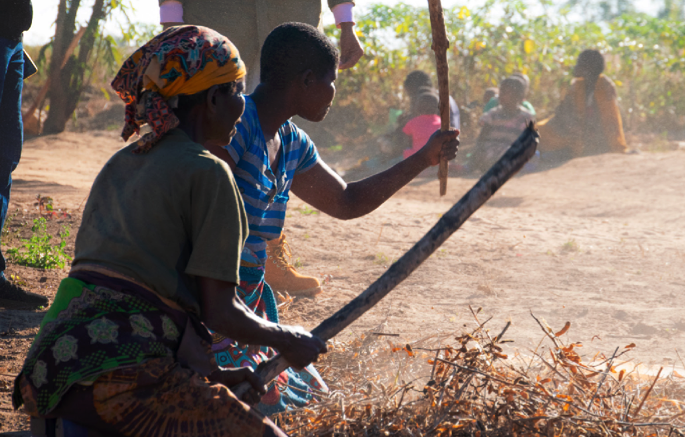
Transforming communities
In 2020, we were able to train more than 95,000 farmers, miners, and workers to improve their practices across more than 90,000 hectares of land. Better environmental practices delivered additional benefits with 47 percent of cocoa farmers in Ghana seeing a marked increase in yield and income. Facing Covid-19 restrictions, we were able to pivot and offer accessible digital support through Interactive Voice Response (IVR) systems, reaching more than 77,000 farmers and miners with technical support. These efforts were rounded out by advocacy efforts that contributed to six policy proposals to decision makers, which resulted in direct government action on topics ranging from land tenure rights to budgetary commitments.
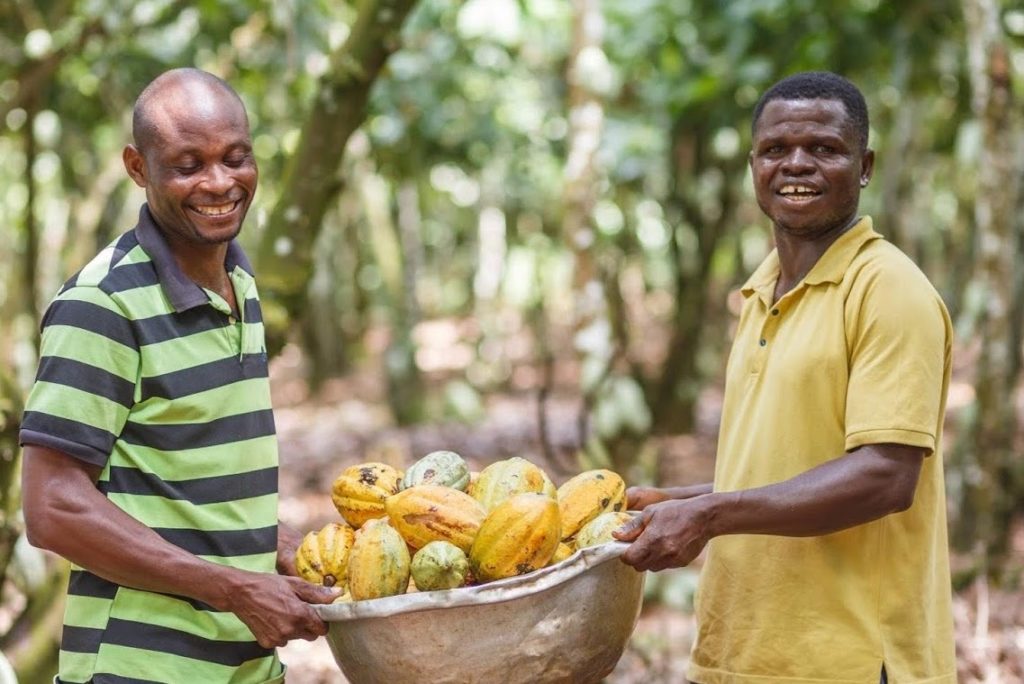
Executive Summary
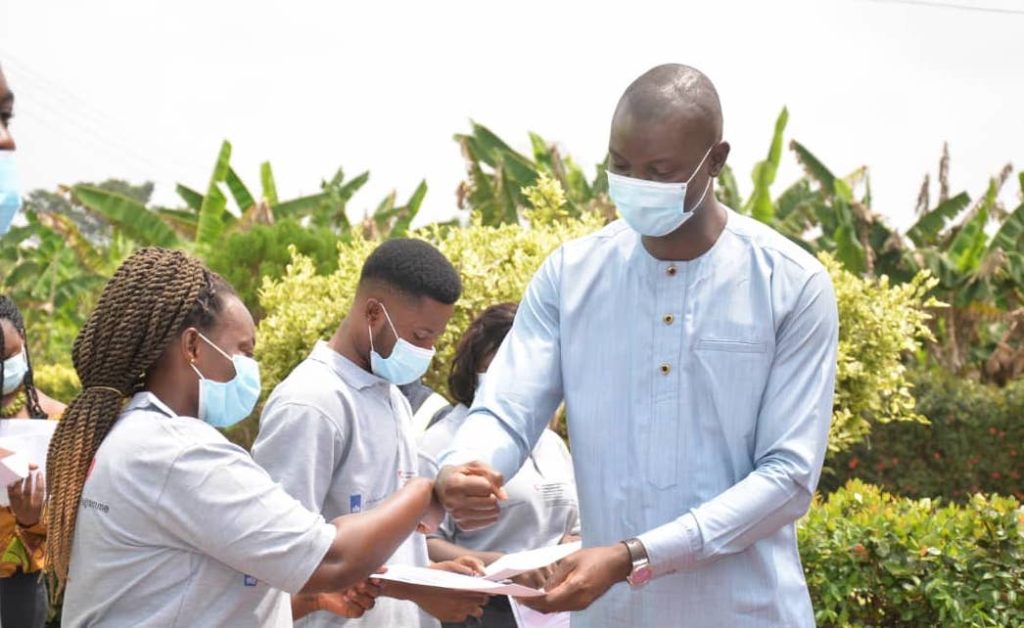
Reflection
A year to remember
Covid-19 took the world by storm, causing devastating loss of live, challenges to social infrastructure and unprecedented disruptions to global supply chains. These events, along with rigorous collection of data and deep connections with smallholder producers, informed the development of our 2021-2025 multi-annual strategic plan, and reconfirmed our dedication to supporting smallholder producers.
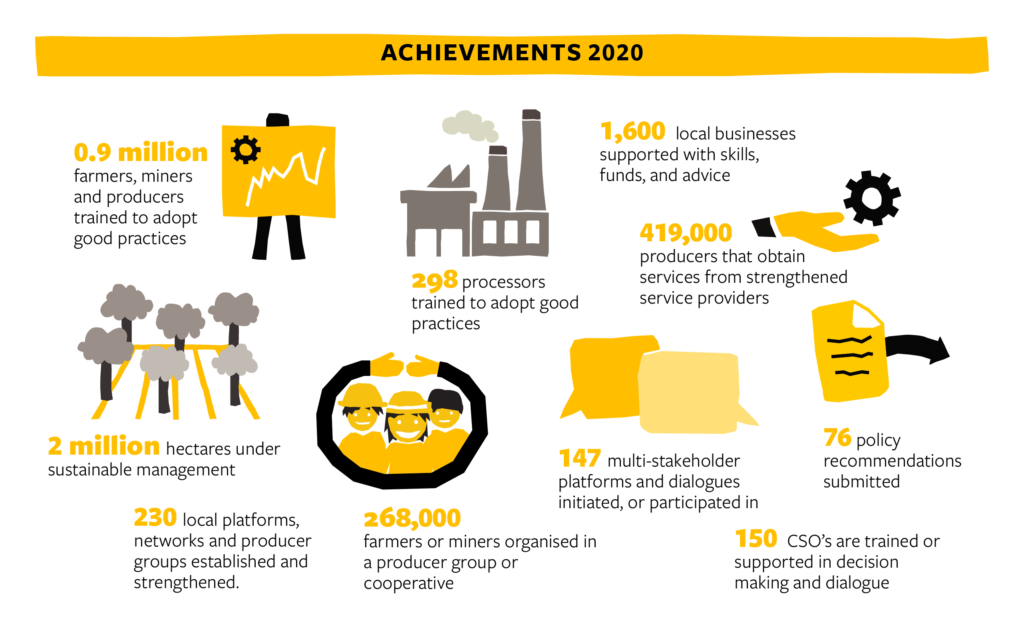
Global Programmes
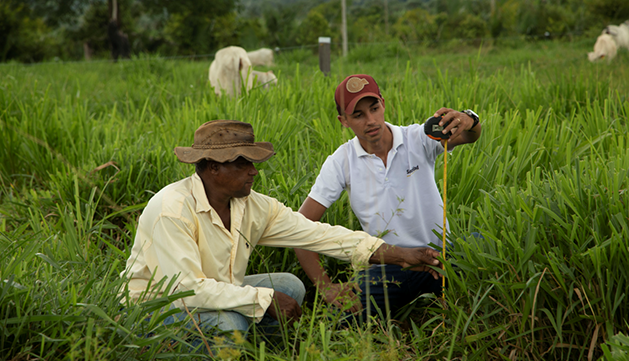
Overview
An unprecedented year
Despite the challenge of 2020, there were significant results across programmes, made possible by exhaustive research, strategic partnerships, and a human-centered approach.
Most significant changes
Organization & governance
Creating an economy that works for the poor starts with nurturing a network that is grounded on shared principles and operates seamlessly, as one. In 2020, we laid the foundation towards an even more coherent and interconnected network. A network in which regions have the independence and ability to innovate at each level, while interconnectedness pulls us together to strategically act as one.
More information about our staff, management and supervision can be found here.
Nurturing a Network
Change starts here
The backbone of all our work remains the Solidaridad staff. Their knowledge, experience, and expertise are key to our success. The overall staff of Solidaridad in 2020 has grown by 70 people from 915 by the end of 2019 to 985 by the end of 2020. Thirty-four percent of Solidaridad staff is female and the overall population is quite diverse. Both our international supervisory board and our executive board have a 50/50 ratio in gender and dominated by representatives from the global south.
More information about our staff, management and supervision can be found here.

Finance
Trends
In 2020, we saw a decline of 16 percent in our income in relation to 2019. We expect to catch up in 2021 and to continue on the trendline of a growing income. One of the major successes in 2020 was the grant of a 5 years contract, valuing 53.7 million Euros with the Dutch Ministry of Foreign Affairs for their ‘Power of Voices’ programme. This grant was provided to our Reclaim Sustainability! Consortium, which we launched together with Business Watch Indonesia, Africa Trust and FairFood. This base funding shows that the new 2021-2025 Solidaridad strategy is worthwhile supporting.
